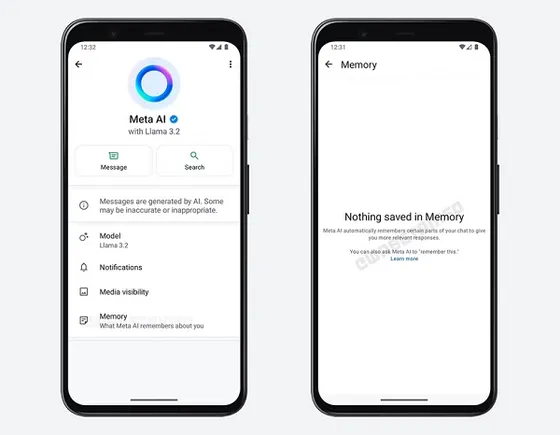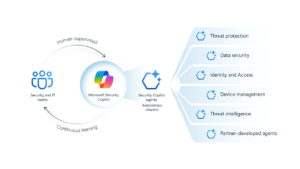Meta Could Simplify Customization of AI Chat Features

Meta’s New AI Memory Feature in WhatsApp
Introduction to AI Memory
Meta is developing an innovative feature called “Memory” for its AI chatbot services, particularly within WhatsApp. This new option aims to enhance user interaction by allowing the AI to remember personal preferences and refine its responses accordingly. Recently, this functionality was unveiled in the latest version of WhatsApp, indicating a significant step towards personalizing user experiences.
How AI Memory Works
The concept behind AI Memory is straightforward. A user will be able to interact with Meta’s chatbot and instruct it to remember certain details. This includes aspects of your profile such as preferred names, dietary choices, or specific rules for the chatbot to follow in conversations. The AI will then utilize this information to tailor its responses, making them more relevant and suited to individual user needs.
- Remembering Preferences: Users can instruct the chatbot to remember details about themselves. For instance, you might say, “Remember to call me Alex” or “Keep my vegan preferences in mind.”
- Adjusting Memory: The feature will also permit users to manage what the AI remembers. This means that if preferences change over time, users can update or delete previous commands that the AI has stored.
Benefits of the AI Memory Feature
- Personalized Interaction: By remembering details about the user, the AI can provide a more tailored experience, making conversations feel more relevant.
- Enhanced Utility: This feature maximizes the utility of generative AI by aligning responses with specific user preferences, allowing for conversations that better fit individual circumstances.
- User Control: Users have the power to modify what the AI retains, thus providing a degree of control over the personalization of their chat experience.
Comparing with Custom Bot Creation
This AI Memory functionality resembles another initiative by Meta for Instagram, which allows users to create customized bot friends. By selecting various character traits and stylistic options, users can develop a chatbot that fits their desired interaction style. This shows a broader trend toward making AI tools more user-centric and versatile.
Recent Developments in Meta’s AI Strategy
Meta has not only focused on enhancing chat experiences but has also made significant hires to push this agenda forward. For instance, they recently brought on Michael Sayman, the developer of Social.ai. This app allows interactions with numerous AI bots, each equipped with unique personalities and focuses. Sayman’s expertise could further strengthen Meta’s efforts to personalize AI interactions.
Unique Capabilities
The Memory feature goes beyond just recalling names and preferences. For example, users can set parameters that instruct the bot on specific functionalities. A user might request the AI to avoid generating artificial images or content that doesn’t align with their interactions. This flexibility ensures that user experience remains valuable and contextually appropriate.
Future Implications of AI Memory
The ability to customize chatbot experiences could revolutionize how users interact with artificial intelligence. With users increasingly seeking personalized content and interaction, such developments from Meta signify a move towards catering to these demands. Moreover, as AI technology continues to evolve, the potential for more sophisticated and engaging interactions grows.
Although the implementation of AI features like Memory in chat applications raises questions about privacy and data management, Meta seems committed to providing users with substantial control over their interactions. As AI technology advances, it will continue to shape how we communicate and engage with digital tools.
In essence, Meta’s introduction of the AI Memory feature represents a pivotal moment in the development of personalized AI interactions, indicating a future where AI understands and caters to individual user needs more effectively.






